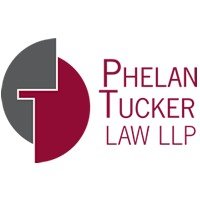Best Antitrust Litigation Lawyers in Iowa City
Share your needs with us, get contacted by law firms.
Free. Takes 2 min.
List of the best lawyers in Iowa City, United States
About Antitrust Litigation Law in Iowa City, United States
Antitrust litigation is a specific area of law that deals with disputes relating to anti-competitive behavior, monopolies, and unfair business practices that restrict free trade and competition. In Iowa City, United States, individuals and businesses may become involved in antitrust litigation either as plaintiffs or defendants. These disputes typically involve the enforcement of federal statutes like the Sherman Act, Clayton Act, and Federal Trade Commission (FTC) Act, and may also involve state antitrust laws unique to Iowa. Antitrust law aims to protect consumers and ensure that markets operate efficiently by preventing practices such as price fixing, bid rigging, market monopolization, and other unfair methods of competition.
Why You May Need a Lawyer
There are several situations where seeking legal advice or representation in antitrust litigation is essential. Some common scenarios include:
- You suspect a competitor is engaging in price fixing or collusion that harms your business.
- Your company is under investigation for alleged anti-competitive practices by the Department of Justice (DOJ), Federal Trade Commission (FTC), or Iowa Attorney General.
- You are involved in commercial transactions, such as mergers or acquisitions, that may raise antitrust concerns.
- Your business is accused of participating in a cartel or other unlawful business practices.
- You are a consumer or business harmed by a monopolistic practice and seek compensation.
- You need to comply with local, state, or federal antitrust compliance regulations.
Antitrust law is complex and defending or prosecuting a case can require specialized knowledge of both local and federal legal requirements. Engaging an attorney ensures the best protection of your rights and interests.
Local Laws Overview
While federal antitrust statutes apply across the country, Iowa also enforces its own laws to promote fair competition and prevent monopolies. The key statutes relevant to antitrust litigation in Iowa City include the Iowa Competition Law (Iowa Code Chapter 553), which closely mirrors federal antitrust standards but also includes additional protections and enforcement mechanisms specific to the state. The Iowa Attorney General has the authority to investigate and bring actions against anti-competitive practices within the state. Businesses and individuals in Iowa City may face lawsuits in either Iowa state courts or federal courts based on the nature and scope of the alleged violations. Additionally, plaintiffs in Iowa can sometimes bring "parens patriae" actions, allowing the state to sue on behalf of its residents. The local enforcement climate emphasizes cooperation between state and federal authorities and often involves thorough investigations before litigation proceeds.
Frequently Asked Questions
What is antitrust litigation?
Antitrust litigation refers to legal cases that address allegations of anti-competitive conduct, such as monopolization, price fixing, bid rigging, or other unfair business practices that violate antitrust laws.
What are the key antitrust laws affecting Iowa City?
The main statutes are the federal Sherman Act, Clayton Act, Federal Trade Commission Act, and the Iowa Competition Law (Iowa Code Chapter 553).
Who enforces antitrust laws in Iowa City?
Antitrust laws in Iowa City are enforced by federal agencies like the DOJ and FTC, and at the state level by the Iowa Attorney General's Office.
Can individuals or businesses bring private antitrust lawsuits?
Yes. Individuals, businesses, and governmental entities can file private lawsuits in federal or state court if they have been harmed by anti-competitive conduct.
What damages can be recovered in an antitrust lawsuit?
Successful plaintiffs can recover compensation for losses, including actual damages, treble (triple) damages, injunctions to stop unlawful practices, and sometimes attorney fees.
When should I contact an antitrust lawyer?
Consider contacting an antitrust lawyer as soon as you suspect anti-competitive behavior, receive notice of an investigation, or become involved in business transactions that raise competition concerns.
What are some examples of prohibited conduct under antitrust laws?
Examples include price fixing, bid rigging, market allocation, group boycotts, and attempts to monopolize a market.
Are some business practices exempt from antitrust scrutiny?
Certain activities, such as some collective bargaining and government-regulated practices, may be exempt or subject to special rules. An attorney can clarify what applies in your situation.
How long does antitrust litigation usually take?
The process can range from several months to multiple years, depending on the complexity of the case and whether it involves government agencies, private parties, or both.
What should I do if I am accused of violating antitrust laws?
Contact an experienced antitrust attorney immediately. Do not speak to investigators without legal representation, as these cases can result in significant financial and reputational consequences.
Additional Resources
- Iowa Attorney General - Consumer Protection Division
- United States Department of Justice - Antitrust Division
- Federal Trade Commission (FTC) - Bureau of Competition
- American Bar Association - Section of Antitrust Law
- Iowa State Bar Association
- University of Iowa College of Law - Legal Clinics
Next Steps
If you believe you are affected by anti-competitive practices or are facing investigation or litigation, consider the following steps:
- Gather all relevant documentation and records relating to the suspected conduct or inquiry.
- Consult with an experienced antitrust litigation attorney in Iowa City to discuss your situation and legal options.
- Ask your attorney about both the federal and state components of your case, and about the anticipated process and costs.
- If you are a business, review your compliance policies and consider conducting an internal investigation in consultation with legal counsel.
- Respond to any government investigations or inquiries only with the guidance of your lawyer.
- Stay informed about your rights and the resources available to assist during the litigation process.
Taking swift and informed action is crucial in antitrust matters due to the high stakes and complex nature of the laws involved.
Lawzana helps you find the best lawyers and law firms in Iowa City through a curated and pre-screened list of qualified legal professionals. Our platform offers rankings and detailed profiles of attorneys and law firms, allowing you to compare based on practice areas, including Antitrust Litigation, experience, and client feedback.
Each profile includes a description of the firm's areas of practice, client reviews, team members and partners, year of establishment, spoken languages, office locations, contact information, social media presence, and any published articles or resources. Most firms on our platform speak English and are experienced in both local and international legal matters.
Get a quote from top-rated law firms in Iowa City, United States — quickly, securely, and without unnecessary hassle.
Disclaimer:
The information provided on this page is for general informational purposes only and does not constitute legal advice. While we strive to ensure the accuracy and relevance of the content, legal information may change over time, and interpretations of the law can vary. You should always consult with a qualified legal professional for advice specific to your situation.
We disclaim all liability for actions taken or not taken based on the content of this page. If you believe any information is incorrect or outdated, please contact us, and we will review and update it where appropriate.









